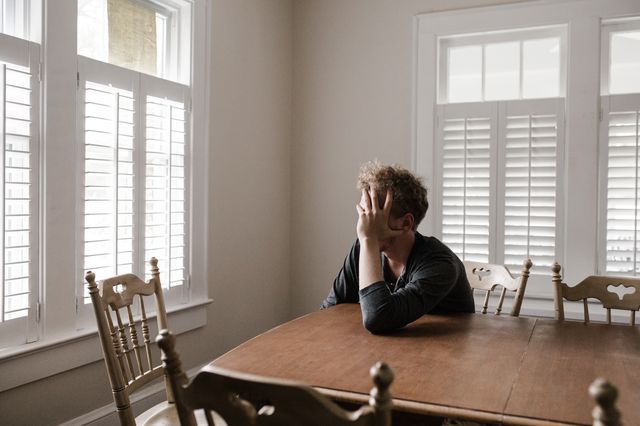
In the last “Questions of Faith” post, Jesus meets a blind man name Bartimaeus, and he asks an incredulous question. It is clear from Bartimaeus’ actions that he is blind, and yet, when he is standing before Jesus, Jesus asks him, “What do you want me to do for you?”
In today’s scene, Jesus meets another man in desperate need. Jesus is at the Sheep Gate in Jerusalem, standing by a pool named Beth-zatha. Gathered around the pool are people with all kinds of illnesses and infirmities. There is a legend that when a spirit stirs the water, the first person in the pool will be healed. It was a legend that for them was hope for a new life.
Stand next to Jesus and see this scene with him…not just with your eyes but with your heart. There are the sounds of pain and agony from various inflictions. There is the vying for a position closest to the water. People stand with one eye on the water and one eye on the people walking by, hoping for a handout. And the people walking by? This is a scene that is there every day when they enter the gate, so many of them don’t even notice it anymore.
How often did the stirring water happen? Can you imagine the scene when it does? Yelling and pushing and shoving. Can you imagine the delight of one person and the despair of everyone else? And why only one person? Couldn’t this spirit heal dozens? Why not everyone?
With all that is happening in this scene, Jesus’ eyes focus on one man. Who knows why, but Jesus is drawn to this man. He walks up to him, and the man looks up, perhaps hoping for a coin or two. Instead, Jesus looks deep into his face and asks: DO YOU WANT TO BE MADE WELL?
If the question Jesus asked Bartimaeus was incredulous, this one is almost cruel. Who would he ask a man who has been paralyzed for 38 years if he wants to be healed?

And yet, notice what happens. The man doesn’t ignore Jesus. He doesn’t get angry at him for asking an insulting question, “Of course I want to be healed you idiot.” Instead, he offers an excuse. Because I am paralyzed, I don’t have anyone to put me in the water when it stirs. Perhaps it is the tone in his voice that touches Jesus. He is looking into the face of a man who has lost all hope. And that absence of hope is why this is an important question of faith.
He has been this way for almost his whole life. This condition has become his identity; it has become who he is. After 38 years, his hope has died, and all he is left with is passive despair. So, the question is an honest one for the man, and for us, to answer.
The question is an invitation for the man to imagine being new and different. The man’s answer reveals that it is hard for him to go there. This is my life. This is who I am. Even if I go there for a moment, the reality of the last 38 years and what my future really holds comes crashing down on me.
The question is an invitation for us to imagine how our lives can be new and different. We hear the promise that newness of life can offer.
We feel the power of that promise, and our hearts want to claim them. But we know the reality of our own lives. Perhaps it is just the tedium of everyday living. Maybe it is a habit or a condition that has been there for so long. And eventually the promise and power of a new life is reduced to a moment of inspiration that quickly fades.
The challenge of this question is one I encounter often in my work as a counselor. There is a problem with alcohol or drugs or some other compulsive behavior. They are sitting in my office, telling me about the problem, which means they want to be different. And then, as we talk about what life would be like without the addiction, it is not unusual to hear words like, “This habit has been in my life for so long. I’m not sure I can ever get over it.”
The couple is sitting in my office talking about the arguing and the conflict. Some part of them wants to be different. And yet, the marriage has been bad for so long. Why should we even try?

It is the same with people who are struggling with anxiety or depression or the effects of trauma. Instead of being one of many things present in your life, it becomes who you are. Instead of having anxiety or depression, it is “I am anxious” or “I am depressed.” “I have been this way for as long as I can remember.” “I can’t undo the trauma that happened to me.”
While I may not use his language, I am inviting them to consider the question that Jesus asks this man: Do you want to be made well?
The question is not an invitation to empty optimism or wishful thinking. In order to consider being made well, you have to acknowledge things as they are right now. Those voices are there, and you can’t just wish them away. But the question invites you to make room for other voices that have been buried and lost in you. These voices tell you than living in emptiness, living in hopelessness, living in the tedium of everyday life, will not take your life the direction you want it to go.
I can’t silence that part of me that screams the problem has been here for so long, there is no way to change. I can’t make that part of me go away. But even in its presence, can I choose what gives me meaning and purpose? Even in its presence, can I commit to actions that take me in the direction I want my life to go?
Can I stand up, take my mat and walk?
